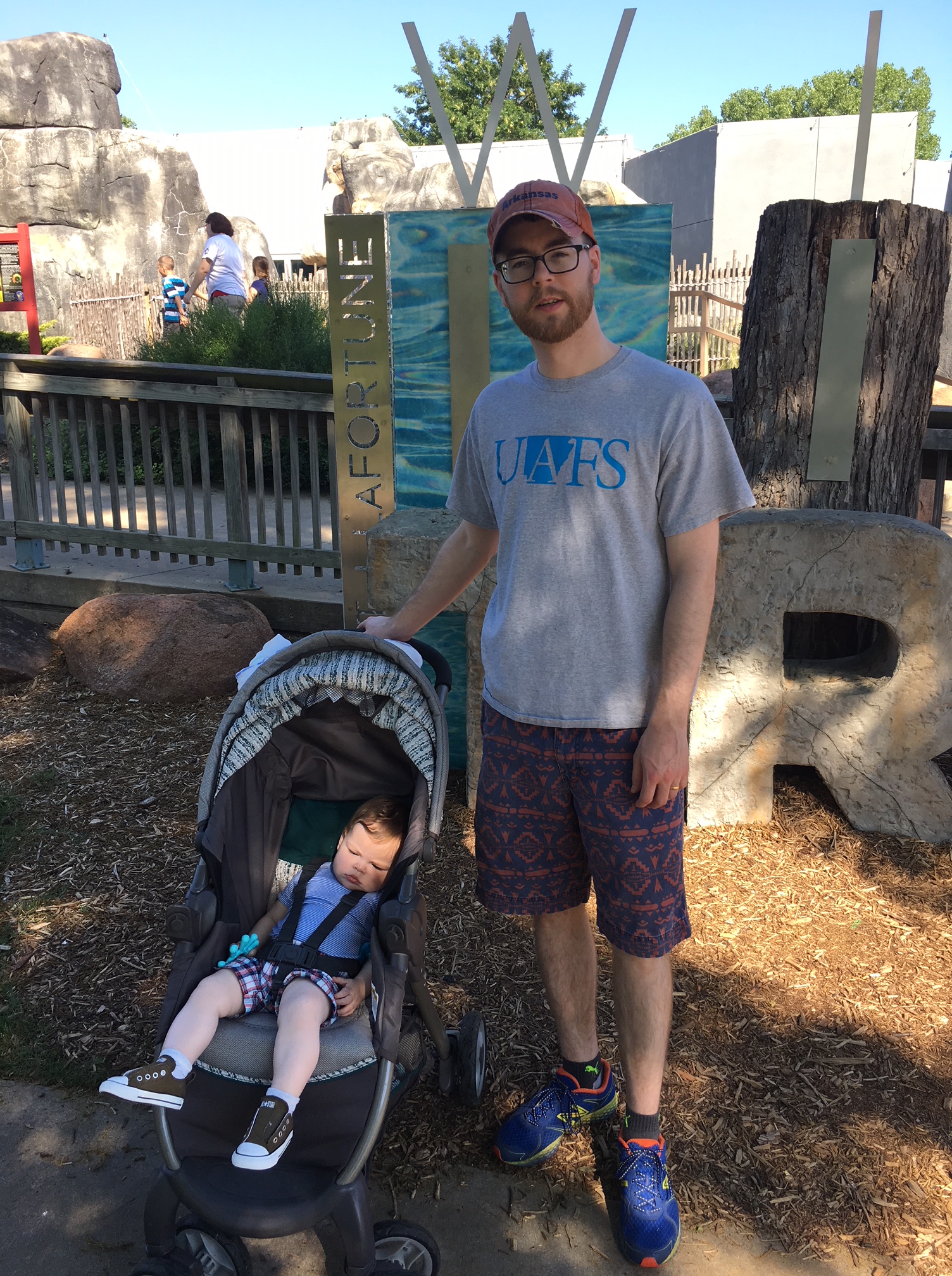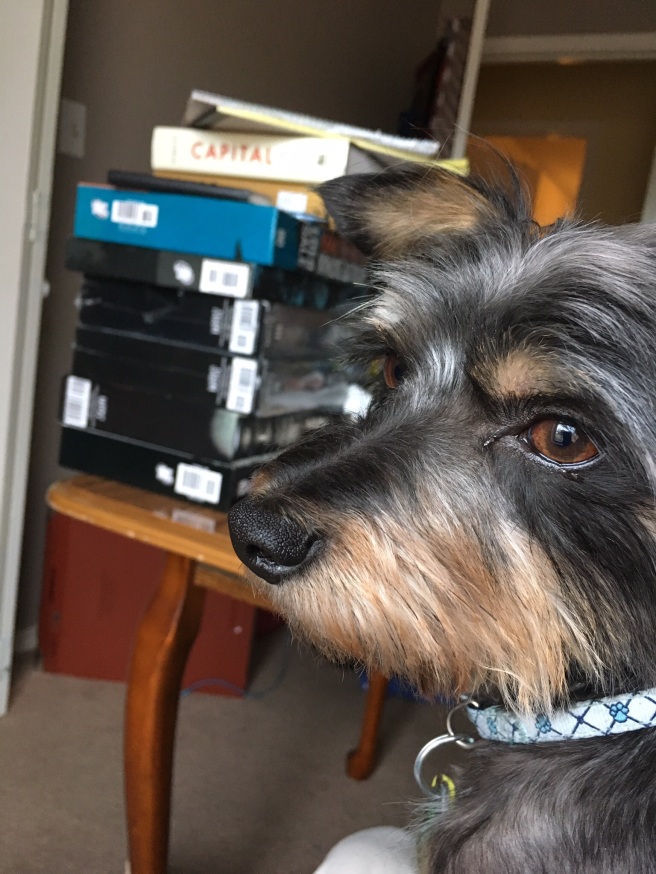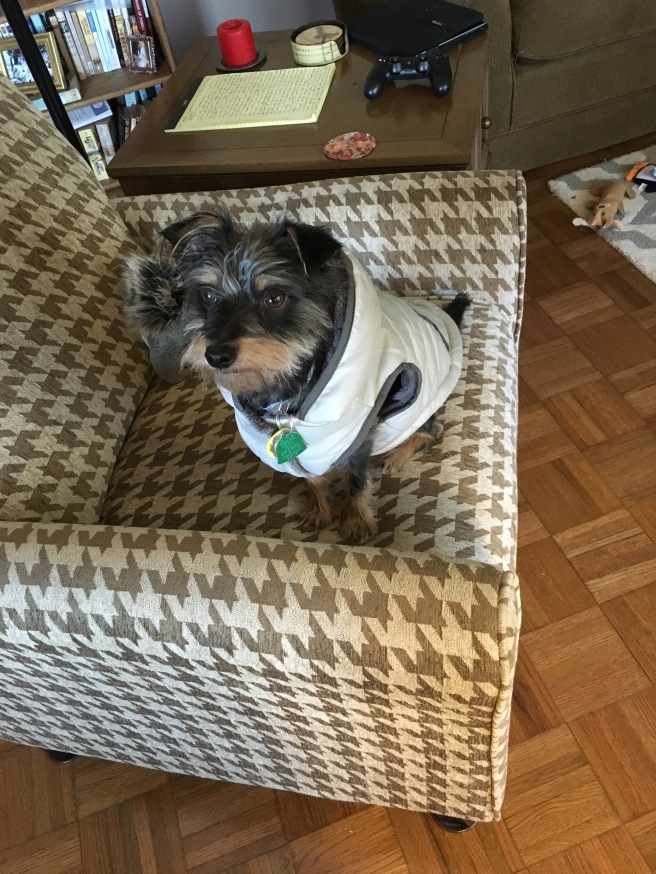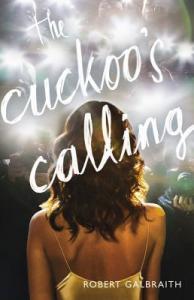
While we were on what will probably be the nicest vacation of our lives, Jess’s mom called us and told us one of our cats, Claude, had stopped eating and drinking. The news that our cat was effectively dying, although we didn’t know it at the time, was not exactly surprising. When we adopted Claude in 2011, so too did we adopt the litany of health issues that followed: chlamydia in his eyes (didn’t even know that was possible), heart murmur, bladder crystals, and eventually the disease that strickened him worse than any other: diabetes.
He was diagnosed over the summer, a result of lifelong gluttony that we tried to curb but never could. We tried a low-carb version of the prescription cat food he was on, and he became crazed with hunger, jumping onto chairs at the dining table while we ate dinner, pawing at our food. This was, honestly, not much different than his normal behavior though. Weekly, maybe even daily, Claude would rifle in the trash, prowl the kitchen countertops at night looking for any scraps of food we might have negligently left out.
We tried disciplining him, but he always took our disciplines and came back for more. Not to mention that one look at him, at the wide unblinking eyes, that face so reminiscent of Puss in Boots’ puppydog face, that our anger would dissipate.
Jess and I adopted Claude a year after we had started dating. He and Flora, our other cat who we adopted a month before him, had joined us through nearly the entirety of our relationship, beginning when we barely made rent in a Lindsey-owned apartment complex in Russellville, following us to Van Buren when I got a job at UAFS, then to our house in Fort Smith when Jess got hired at UAFS as well and we had enough money to afford a mortgage and then some. He made the move with us to Fayetteville when Jess got hired at the University of Arkansas and we purchased a house here, already living a better life than I think we ever imagined for ourselves.
He was an orange short-haired tabby – a mischievous orange short-haired tabby. He stole flour tortillas from the garbage. He attacked our other cat, Flora, without remorse. He ate Fitz’s dog food while Fitz sat on the couch beside him, the crunch of the food alerting Fitz and sending him jumping off the couch to defend what was his.
He was an inconvenient pet, in a lot of ways, and maybe that was why I didn’t take his health issues as seriously as I should have when Carrie called. Maybe it was also the luxuriousness of the place we were staying, too. I was in the Dominican to be a best man in my good friend Devin’s wedding. The resort we stayed at was a complex of villas on the coast of the island, highlighted by a several thousand square foot mansion with countless balconies, couches and chairs overlooking a swimming pool and the beach and rolling waves beyond it. Not only did we get to enjoy this resort – we, the wedding party, got to enjoy it exclusively. This was the sort of locale – and the sort of wedding – that you see in movies. Except we were living it.

Charlie stayed at home with Carrie, who also looked after our pets and administered Claude’s insulin shots. People asked several times throughout our four-day stay if I missed Charlie. Sometimes I was too drunk to remember my answer, but the truth was, no. I did not miss Charlie. I barely thought about Charlie. (It helped that he was not exactly missing us either, judging from the videos we saw of him playing, so I think the feeling was mutual) It was not that I don’t enjoy being a parent, but this was our first vacation since having Charlie 18 months ago. I slipped back into our old life, the one where Jess and I were a carefree parentless couple, more easily than I ever imagined. At that resort, with unlimited alcohol and amazing food and a waitstaff dedicated solely to our enjoyment, Jess and I were reminded of the freedom of a parentless couple. We drank freely and swam and sat down at the beach watching the waves build and crash toward the shore.
Carrie called on Thursday, two days into the trip, to tell us about Claude. She had tried giving him wet food, milk, any delicacy he wanted, but his usual voracious appetite was gone. At the time, I did not take it as seriously as maybe I should. I figured he was sick similar to how he was sick initially with diabetes, something that a visit to the veterinarian would fix once I got back.
I did not fully grasp the situation until we returned home and I found him lying on the bathmat in the guest bathroom, something he had never done before. He was frail, thin – two pounds lost over the week, according by the scale. His normally wide, round eyes were narrowed, half-lidded. His breaths did not so much rise and fall as expand and contract his thinned frame.
We were exhausted, so I petted him, tried to offer him food, which he showed no interest in, and went to bed. The next morning, a Sunday, I woke up and found him exactly where he was the night before. Seeing him then, the realization hit me in full force: he was dying.
I made an appointment to have him put down with a vet’s office in Fayetteville that was open on Sundays. We wrapped him in a towel – in good health, we would have to wrangle him into a cat carrier, but now he was so weak he could barely stand – and carried him out to the Corolla we had bought four years before, when our family was just us and Claude and Flora.
The vet was located in a Quonset hut off Wedington. I went inside and checked in while Jess sang him “Amazing Grace” in the car. When they were ready, I went and got Jess, and she carried him into an exam room. The vet came in, talked to us, guessed ketoacidosis for the cause, and administered a sedative before giving us some time alone.
I held him in my arms and rocked him as Jess and I cried. When the vet came back in, we lay Claude on the exam table, the brown bath towel underneath him, the one my grandmother bought for me 12 years ago for my dormitory my freshman year of college. The vet held a syringe of some pinkish fluid (I think it was pinkish, at least). They sprayed rubbing alcohol on his leg, matting down the fur to reveal a purplish-blue artery coursing down his thigh.
The vet slid the length of the needle, barely thinner than the vein itself, into Claude’s vein and depressed the plunger. A few seconds passed. I held Claude’s head in my hand, stroked his nose with my thumb. His chest was still rising and falling, and then his breathing shallowed. The vet placed a stethoscope to his chest, and a few terrifying moments passed, his body still. I did not want the moment to be over, the last moments of Claude’s life, but I also did not want this moment, with all its grief and sorrow, to continue.
The vet looked at me, nodded, and told us that he had passed. It took fifteen minutes, at the most.
Carrie buried him at the pet cemetary on her land, a few hundred feet from the house where he had spent a summer of his life while Jess and I lived in Washington, D.C., where I worked at ACE Hardware in Takoma Park and Jess commuted to the city for an internship.
Reflecting on it the next day, the sequence of events seemed surreal: an insanely extravagant vacation giving us a taste of the life before kids before returning to not only say goodbye to the Dominican, but to a friend who had been with us throughout our relationship, who also signified a goodbye to our lives before Charlie. Even my best man’s speech, about life being short, about living in the moment, about the power and individuality of places and memory: it was all the kind of convenient convergence of theme and meaning and occurrence that happens under an author’s pen, not in real life.
Claude died two days before Christmas. On Christmas morning, Jess and I awoke early, made coffee and sat on the couch. Claude’s stocking still hung from the fireplace mantle, feather toys sticking out its top, toys he would’ve loved. Lately, Charlie had enjoyed taking the toys and swinging them, giggling in delight as both cats tried to swipe at it.
When we got the chance, we liked to sit and drink coffee like this in the mornings. A reminder of those days from before, when we were just a couple, when we would sit on the couch with a whole day of freedom ahead of us. Later that Christmas day, we would play with Charlie, laugh with him, tickle him, feed him, bathe him, love him, and try to enjoy every great but sometimes challenging moment with him. But now, we cherished the moments before he awoke, when we could have a small taste of the simple life.
Except, without Claude, it wasn’t the same house, the same mornings as it was before. It didn’t feel the same. It never will again.






 It’s become cliche to say that an author has brought a certain subject matter or historical period “to life,” but the expression is warranted in the case of Madeline Miller’s Circe.
It’s become cliche to say that an author has brought a certain subject matter or historical period “to life,” but the expression is warranted in the case of Madeline Miller’s Circe.















